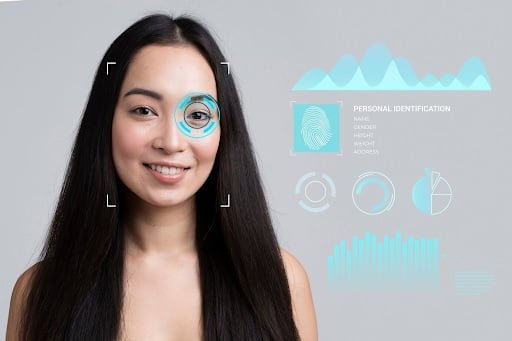Discover the revolution in dermatology! 💡Unlock the potential of AI for advanced skin analysis. Clear skin awaits! 🥼🔬➡️ #AI #Dermatology
Artificial intelligence (AI) refers to the simulation of human intelligence processes by machines, particularly computer systems. This technology encompasses learning, reasoning, and self-correction. AI is utilized in various fields, from healthcare to finance, enhancing efficiency and decision-making while raising ethical considerations regarding its implementation and impact on society. Click the link for more information: https://www.evelabinsight.com/en/

The relationship between artificial intelligence and dermatology is rapidly evolving. AI technology enhances skin disease diagnosis, treatment recommendations, and patient management. By analyzing images and data, AI tools provide dermatologists with valuable insights, enabling faster and more accurate decisions that improve patient outcomes in various skin-related health conditions.
Understanding the Rising Importance of AI in Dermatology
Current dermatological skin analysis techniques encompass various methods, including visual assessment, dermatoscopy, and digital imaging. Technologies such as confocal microscopy and artificial intelligence enhance diagnostic accuracy, allowing for early detection of conditions. Additionally, non-invasive biopsy alternatives provide essential information regarding skin health while minimizing patient discomfort during examinations.
Traditional dermatological methods often face challenges, such as limited diagnostics accuracy and inconsistencies in treatment efficacy. Additionally, they may overlook underlying skin conditions or individual patient needs. The reliance on outdated practices can lead to misdiagnosis and inappropriate therapies, ultimately affecting patient outcomes and overall satisfaction with dermatological care.
As individuals around the globe become increasingly interested in skincare and personalized beauty solutions, AI skin analysis emerges as a groundbreaking technology designed to elevate our understanding of skin health. Utilizing sophisticated algorithms and machine learning, AI-driven tools can assess various aspects of an individual’s skin—such as texture, tone, pore size, pigmentation, and signs of aging—with remarkable precision.
Traditional methods of skin analysis often rely on subjective assessments from trained professionals; however, AI technology offers a new paradigm that enhances accuracy and accessibility. By harnessing vast datasets accumulated over time—including images labelled with expert evaluations—these systems provide users with data-driven insights into their unique skincare needs. Moreover, they empower consumers through mobile applications and online platforms that make professional-level diagnostics readily available at their fingertips.
The future possibilities for AI skin analysis are vast—from identifying early signs of dermatological conditions to tailoring personalized treatment regimens based on individual response patterns. As this innovative approach continues to develop, it promises not only to optimize skincare but also to foster greater awareness about the importance of overall skin health among diverse populations worldwide. With continued research and integration within clinical practice, AI has the potential to
The Intersection of AI and Dermatology
AI-driven tools for skin analysis utilize advanced algorithms and machine learning to assess skin conditions accurately. By analyzing images, these technologies can identify issues such as acne, pigmentation, and texture irregularities. They provide personalized skincare recommendations, aiding users in achieving healthier skin through tailored solutions customized to individual needs.
AI-driven advanced skin analysis offers numerous advantages, such as precise identification of skin conditions, personalized treatment recommendations, and enhanced monitoring of skin changes over time. By leveraging data analytics and machine learning, these systems promote early detection of issues while improving overall skincare routines for individuals seeking healthier, radiant complexions.
The dialogue surrounding artificial intelligence in dermatology emphasizes its accuracy and effectiveness. AI technologies enhance diagnostic processes, enabling faster identification of skin conditions with higher precision compared to traditional methods. This advancement promises improved patient outcomes by facilitating timely interventions and personalized treatment strategies tailored to individual needs and medical histories.
Case Studies and Research Results
Numerous case studies demonstrate the effective implementation of AI in skin analysis, leading to enhanced diagnostic accuracy and patient outcomes. These advanced technologies enable quicker risk assessments for skin conditions, improve treatment personalization, and foster preventative healthcare strategies—all contributing to significant improvements in skincare practices and overall dermatological health.
Numerous studies highlight the effectiveness of artificial intelligence in dermatology. These investigations demonstrate that AI can accurately diagnose skin conditions, enhance treatment planning, and assist healthcare professionals. The integration of AI technologies into clinical practice promises to improve patient outcomes while streamlining workflows for dermatologists, revolutionizing skin health management.
Dermatologists are integrating AI technology for enhanced skin assessments, using algorithms to identify conditions like melanoma and eczema through imaging. These real-world applications improve diagnostic accuracy, streamline patient care, and enable personalized treatment plans, demonstrating the significant potential of AI in dermatology for better clinical outcomes and increased efficiency.
Revolutionizing Dermatology: AI in Practice
Future developments in dermatology will leverage AI to enhance diagnostic accuracy and treatment personalization. Algorithms may analyze imaging data more effectively, detect skin conditions early, and recommend tailored therapies. Additionally, real-time monitoring through wearable technology could empower patients while streamlining the workflow for dermatologists, ultimately improving patient outcomes and efficiency.
Recent advancements in AI have significantly enhanced the prediction and prevention of skin diseases. Machine learning models analyze images and patient data, enabling early detection of conditions like melanoma. These technologies facilitate tailored treatment plans, improve diagnostic accuracy, and empower healthcare professionals to optimize patient management through innovative solutions in dermatology.
AI plays a crucial role in personal skin health management by analyzing individual skin conditions, offering personalized recommendations for skincare routines, and predicting potential problems. It can track progress over time and alert users to changes needing attention, ultimately enhancing overall skin health through tailored solutions and informed decision-making.
Addressing the Challenges of Implementing AI in Dermatology
The integration of AI in dermatology faces several challenges, including data privacy concerns, algorithm bias, and the need for robust validation. Additionally, acceptance among healthcare professionals and patients may be hindered by trust issues. Furthermore, regulatory barriers could slow down the adoption process in clinical settings.
To address these challenges, several strategies can be implemented. Enhancing communication between teams fosters collaboration and understanding. Embracing new technologies streamlines processes, boosting efficiency. Additionally, investing in employee training empowers staff with essential skills to adapt effectively, while flexible work arrangements help accommodate diverse needs and promote a productive environment.
Training and education in artificial intelligence (AI) are crucial for dermatologists, as they enhance diagnostic accuracy and improve patient outcomes. By understanding AI technologies, dermatologists can leverage data-driven insights to refine their clinical practices, stay updated with innovations, and effectively integrate AI tools into their daily routines for better healthcare delivery.
FAQs
How accurate is AI skin analysis?
AI skin analysis can provide valuable insights by assessing various skin conditions through image recognition and algorithms. However, its accuracy depends on the quality of training data, model sophistication, and specific use cases. Users should rely on professional evaluations for critical assessments while considering AI tools as beneficial supplementary options.
What is AI skin analysis?
AI skin analysis involves utilizing artificial intelligence technologies to assess and interpret various aspects of skin health. It typically includes evaluating features such as texture, pigmentation, and imperfections through images or scans. This innovative approach enables personalized recommendations for skincare routines and treatments, enhancing overall dermatological care in a non-invasive manner.
How accurate is the AI dermatology app?
The accuracy of AI dermatology apps varies significantly. Many studies suggest that these applications can reliably identify skin conditions, often comparable to dermatologists. However, their performance depends on factors like data quality and algorithm training. Users should consult healthcare professionals for definitive diagnoses rather than relying solely on app results.
What is the AI tool for skin problems?
AI tools for skin problems are innovative applications that analyze skin conditions using advanced algorithms. These technologies can identify issues like acne, eczema, or rosacea through images while providing personalized treatment recommendations and skincare routines. They aim to enhance dermatological care accessibility and efficiency for users seeking solutions for their skin concerns.






